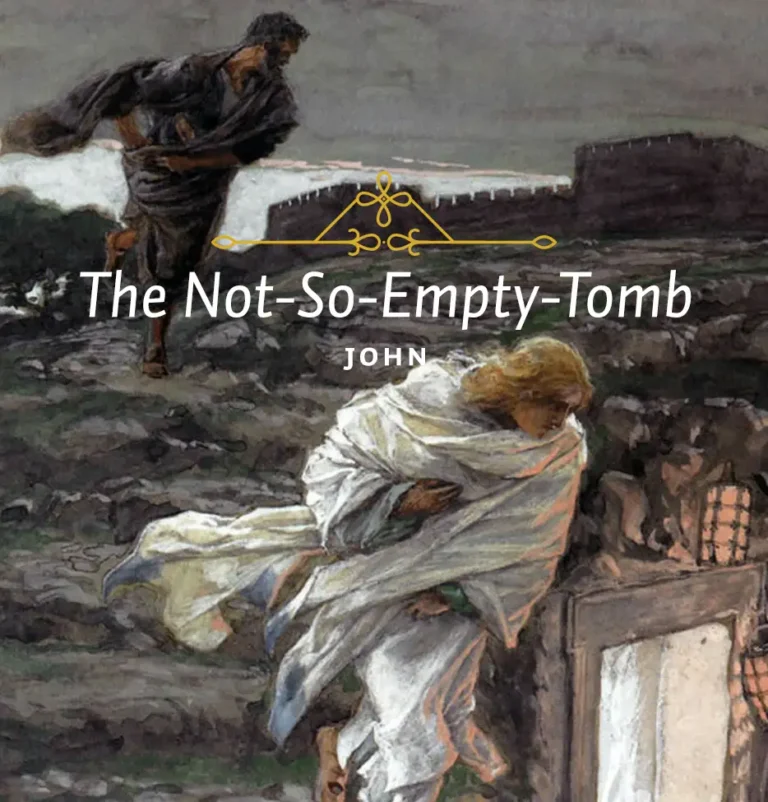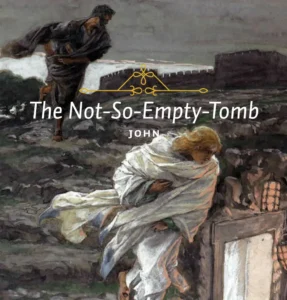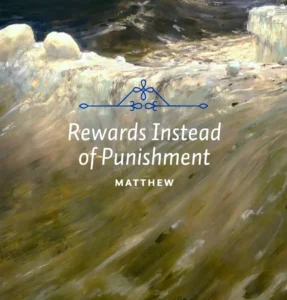
Mary meanwhile found the two chief disciples Peter and John, presumably in John’s house where the beloved disciple had taken Mary, Jesus’ mother. The two disciples immediately started for the tomb, running and leaving Mary far behind. John was the younger man. Consequently, he arrived at the tomb first, stooped to look through the narrow aperture, and saw the graveclothes.

Mary meanwhile found the two chief disciples Peter and John, presumably in John’s house where the beloved disciple had taken Mary, Jesus’ mother. The two disciples immediately started for the tomb, running and leaving Mary far behind. John was the younger man. Consequently, he arrived at the tomb first, stooped to look through the narrow aperture, and saw the graveclothes.

One of the great historical evidences of the resurrection of Jesus Christ is the fact of the empty tomb. But the remarkable and quite startling fact is that when Peter and John arrived at the tomb on the first Easter morning it was not quite empty. That’s right, the tomb on Easter morning was not quite empty. The body of Jesus was gone, but something was still there. The graveclothes remained behind. And the Bible suggests that there was something about them so striking that John at least saw them and believed in Jesus’ resurrection.

One day there will be a great reversal. As is often the case in this life because of sin and the commitment that men and women have to unbelief, that unbelief is rewarded and the truth is punished. That’s happened before, and it will happen again. But, nevertheless, God is on His throne. The day is coming when all of that will be overturned. Unbelief will be judged, sin will be punished, and those who stand with the Lord Jesus Christ will hear Him say, “Well done, thou good and faithful servant. Enter into the joy of your Lord.”

But now I want you to look at something else. I want you to turn from thinking about those enemies of Christ, who are exemplified by the soldiers and the priests on that first Easter Sunday, and instead I want you to focus on Christ’s friends, those who learned of the resurrection and who met with Jesus Christ following His resurrection.

Here’s a case, which like so many others, shows us a man who proposes a theory to explain away the reality of the resurrection. And instead of being rebuffed or forgotten, as Schofield and his book should have been, he is rewarded. It’s a case of rewards instead of punishments.

The soldiers had not left their post, and the tomb was empty. They must have been terrified, wondering what was going to happen to them. After the religious leaders met together, they did not seek to have the soldiers punished. Instead, the guards were told to lie about what had happened.

Each year at Easter time, when I turn to these stories of the resurrection of Jesus Christ, I find myself wondering what I’m going to find new to preach on. When you’ve been doing this as many years as I have now, you begin to have the feeling that you have preached just about everything you can, given the rather limited corpus of material. And yet, each year as I turn to these stories, I find that there’s something there I never saw before.


Canadian Committee of The Bible Study Hour
PO Box 24087, RPO Josephine
North Bay, ON, P1B 0C7